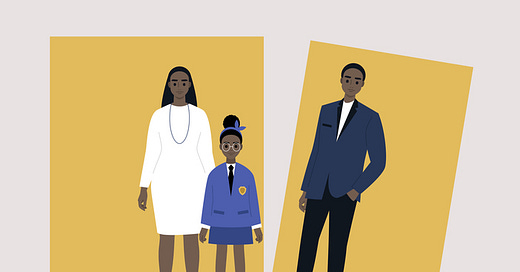The Tragedy of Parental Alienation
The children are turned against the alienated parent, with bitter results.
I want to state at the outset that aside from my experience as a psychotherapist, I am the product of a divorce and parental alienation. I did not meet my father until I was 38 years old.
Among the most heartbreaking types of therapy cases with which I have worked over the years are those of parental alienation. In all of these situations, the divorced spouse who came for therapy was the one who was the target of alienation. It is well known that most divorces are unpleasant. However, when parental alienation occurs, there is a vindictiveness and hatred that is startling. I will never forget one divorce attorney telling me that, in this case, the hostile parent was enjoying the manipulation too much to bring it to an end despite the effect it was having on the kids.
Divorce can be a tumultuous and emotionally charged process with lasting impacts on the entire family. One critical aspect of this complex dynamic is the connection between the type of divorce and the potential for parental alienation. Parental alienation is a phenomenon where a child becomes estranged from one parent, often due to the influence or manipulation of the other parent.
In amicable, collaborative divorces, where both parents work together to prioritize the well-being of their children, the risk of parental alienation is typically lower. In these cases, the focus is on creating a stable, nurturing environment for the children, with both parents actively involved in their lives. This cooperative approach helps to mitigate the negative effects of divorce and foster a healthy relationship between the child and both parents.
In contrast, high-conflict divorces, characterized by intense hostility, hatred, and a lack of compromise, often provide the perfect breeding ground for parental alienation. In these situations, one parent may actively attempt to turn the child against the other parent, using manipulation, false allegations, or emotional manipulation. The result is the child's rejection of the targeted parent, leading to long-lasting emotional and psychological consequences for both the child and the alienated parent.
Furthermore, the legal process of divorce can also play a role in the development of parental alienation. In adversarial, litigation-driven divorces, the focus often shifts away from the needs of the children and towards winning the case. In this environment, parents feel compelled to portray the other parent in a negative light, further exacerbating the risk of parental alienation.
I have also seen situations where one parent is hostile and vindictive, turning the children against the other.
The type of divorce a family experiences has a significant impact on the potential for parental alienation. Amicable, collaborative divorces prioritizing the children's well-being do not result in parental alienation. In some cases, divorced parents remain friendly and share custody with no problems.
In contrast, high-conflict, adversarial divorces can create the perfect conditions for this harmful dynamic to emerge. Understanding this connection is crucial for parents, legal professionals, and mental health practitioners to ensure the best possible outcomes for children during the challenging process of divorce.






Allan, I'm sorry this was your experience.
Great read.
My first and only divorce did not involve children and was amically arranged free by a lawyer for whom we had campaigned.